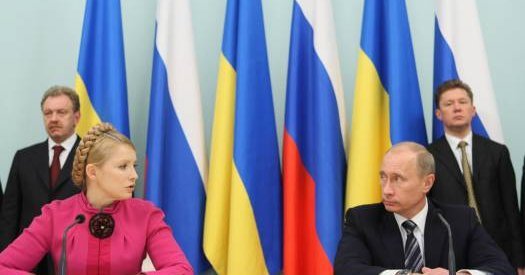But in order to have a clear understanding of the events, which unfolded in the past few months and to be able to find a solution to this ongoing situation we have to delve deep into the psyches of the sides involved, into the way they view the world around them and see what their interests are.
Because it is the less well known, especially to the European and American public which have been fed the “free world versus godless authoritarian communists” story for far too long, we will start with Russia. One thing which has scared the Russian consciousness, and you may very well think their foreign policy as well, is Invasion: invasions of Russia itself that have taken a huge toll on that country and were repelled only after great sacrifices and many casualties. Because this is not a history lesson, we’ll try to be as short as possible in sketching them and if you are interested you can read more about the details. The Mongol hordes in the 13th century, the “Time of Troubles” in the 17th – which is still remembered thanks to the monument to the people who ended it – Minin and Pozharsky on Red Square, the Napoleonic one of 1812 – immortalized in Tchaikovsky’s 1812 Overture and Leo Tolstoy’s “War and Peace”, and of course the Nazi invasion of 1941 which cost the then-Soviet Union 27 million lives. Given all that historical baggage it is no wonder why Putin’s Russia today sees the way the events are unfolding as a prelude to another invasion and the annexation of the Crimean peninsula with its important naval bases is vital for them if things become hot.
The European Union on the other hand is without doubt the clear winner so far, most would say. But is that really so? There is a pro-EU government in Kiev, ready to start association and perhaps membership talks as soon as possible, freedom, democracy and the rule of law have triumphed and all will be well soon. Well, not really.
First of all the Yatsenyuk government came to power via what all legal and political scholars will classify as a coup d’etat. If Brussels is to sign any deal with any Ukrainian government it must be with one, formed after free and fair elections. Also a large part of Europeans, especially those living east of the Rhine rely on Russia for their energy supplies. Any major economic sanctions will trigger reciprocity from Moscow and higher gas prices will almost certainly jeopardize the hard won economic recovery of the EU. And last but not least Ukraine is not in any way ready for membership, nor is the EU able to give it at the present time. A fast track membership offer will have the negative effects of further alienating Russia and at the same time it will have to go through the voters first, which will give the Eurosceptics more to chew on and increase their popularity.
That is why the reaction from Brussels has been restrained so far. Support, both monetary and political has been given, but without any immediate entanglements. In another new twist the High Commissioner has had a key role in this process and more so than any other western diplomat.
Another important point which has been less talked about is the divergence of European and American diplomacy on issues such as sanctions for Russia and what to do with the new government in Kiev. This is part of the process which started some ten years ago when most European countries refused to take part in an unjustified American war and will end hopefully with a fully independent and united European foreign policy. One of the reasons for this development is that most of the continent simply no longer believes the “free world (which oddly enough includes countries like Saudi Arabia where people are still decapitated publicly) against authoritarians” story that has been repeated time and again by Washington.
So what is about to come?
Without doubt the current crisis is one of many harbingers, signaling the end of the monocentric world of international relations. We now have to deal with a rising economic powerhouse in the face of China, a divided, partisan United States, turning its foreign policy agenda away from Europe and into the Pacific region and a Russia which has shaken off the shock that was the breakup of Soviet Union and has started to flex its muscles again. This will be the new world order for the foreseeable future, whether we like it or not.
But where does this leave the European Union?
The possibilities that stand in front of the EU are many and it is up to us, Europeans to choose which way we will take. In fact only a month away from now we’ll be given the opportunity to have our say about how we want to proceed. If we manage to overcome our economic and social difficulties together, as one we will be able to a respected player in the arena of international politics. A strong, federal and united Europe, with a common and independent foreign policy can become a meeting place not only for people of different backgrounds but also a mediator in the disputes between the main players in the diplomatic game. And last but not least we have the opportunity to be an example to others on the road to prosperity and peace. Will we manage this, well only time could tell, couldn’t it.

Follow the comments: |
|
